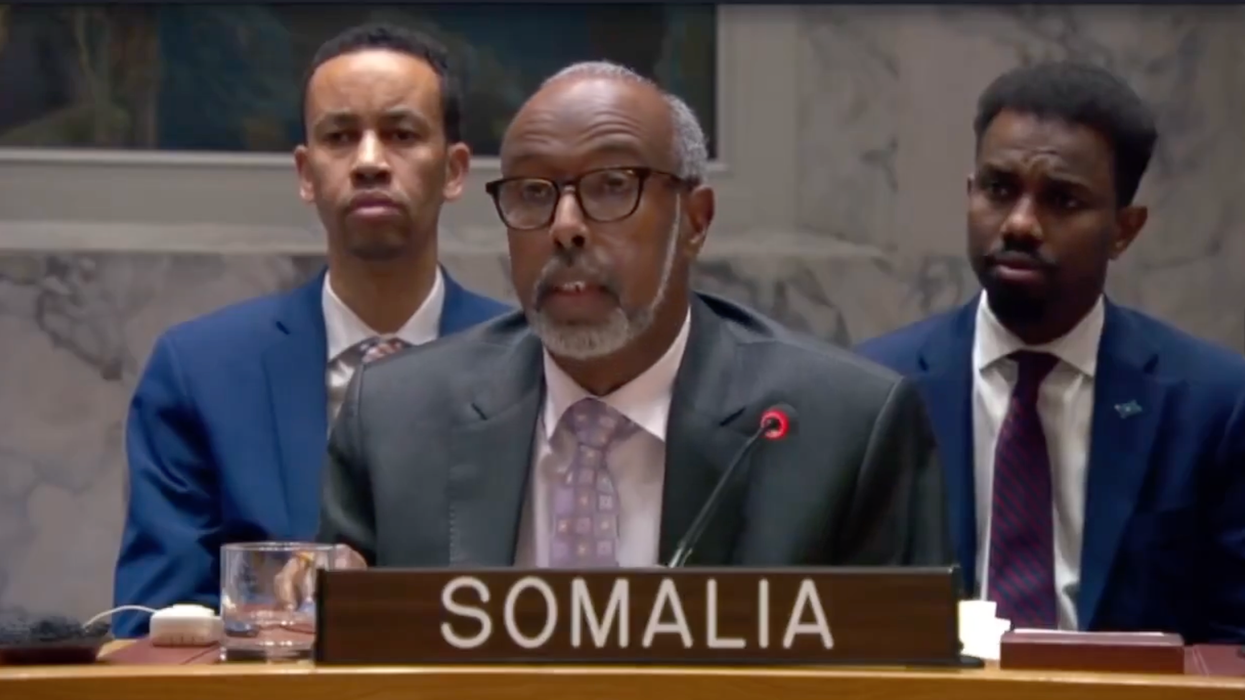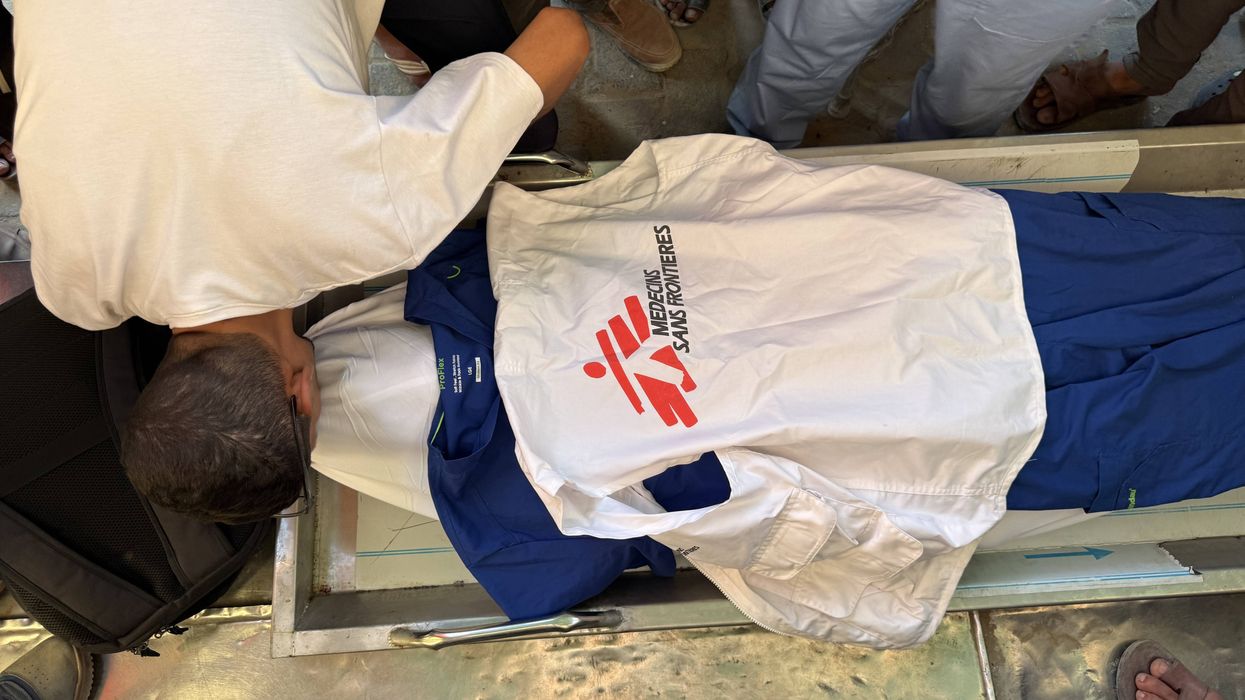May, 12 2009, 12:00am EDT

Bahrain: Investigate Abduction, Beating of Rights Activist
NEW YORK
Bahrain should immediately begin a thorough and impartial investigation into the abduction and torture of the human rights activist Ja'far Kadhim Ibrahim, Human Rights Watch said today. Men whom Ibrahim believed were working for a Bahraini security agency abducted him on the night of May 7, 2009, and beat him severely with batons.
Ibrahim had been contacting political activists recently released from detention concerning their allegations that they had been subjected to torture and abuse in detention. Nabeel Rajab, president of the Bahrain Centre for Human Rights (BCHR), said Ibrahim believes that the men who attacked him are agents of the National Security Apparatus - an official security force - citing their use of walkie-talkies and the batons they used to beat him.
"It looks like the men who abducted and beat Ja'far Ibrahim intended to teach him a lesson - that pursuing torture allegations in Bahrain today carries a high price," said Joe Stork, deputy director of the Middle East division at Human Rights Watch. "The government needs to appoint an independent prosecutor or commission to investigate this incident as the first step in bringing the attackers to justice."
Rajab told Human Rights Watch that he spoke with Ibrahim in his hospital room on May 8. Ibrahim said that at approximately 8:45 p.m. the previous day, he was driving in the Jid Hafs neighborhood, west of the capital, Manama, when two cars cornered him on the road. At least six men in plain clothes, some with walkie-talkies, dragged Ibrahim from his car and confiscated his wallet and two mobile phones. The men blindfolded Ibrahim, forced him into one of their cars, and drove 10 to 15 minutes to an unidentified area, where they beat him unconscious.
When he recovered consciousness he found himself covered in blood and back in his car, alone. He attempted to drive himself to the nearby house of Hasan Mushaima, the head of Haq, an opposition political party. Eventually, acquaintances drove him to the nearby Salmania Public Hospital, where he remains with wounds to his face and head, as well as two broken ribs.
Photographs (URL) taken by the Bahrain Centre for Human Rights show him badly bruised, with swollen facial features, stitches, and a brace on his head and neck. At the time of the attack, Ibrahim was working on behalf of the BCHR and the Bahrain Youth Society for Human Rights, documenting recent allegations of torture in detention and assisting the families of detainees.
"The abduction and beating of Ja'far Ibrahim are a wake-up call that Bahrain needs to investigate seriously and hold accountable those responsible for violence against dissidents," Stork said. "The message here seems to be that torture is acceptable in Bahrain."
Ibrahim, 41 years old and a father of two, was himself was only recently released from detention. In the early hours of February 4, he and fellow rights activist Ali Hassan Salman were taken from their homes by security agents without warrants or explanation and detained for a month without access to a lawyer or family members. Ibrahim was released on March 2.
Bahrain's obligations as party to the International Covenant on Civil and Political Rights include the right of individuals not to be tortured and the right to freedom of association and peaceful public assembly. The UN Convention against Torture and Other Inhuman or Degrading Treatment or Punishment, to which Bahrain is a state party, prohibits torture and cruel and inhuman treatment and requires all cases of torture to be investigated and the perpetrators prosecuted.
Bahraini press coverage of Ibrahim's abuse has been limited to one article in the independent newspaper Al Wasat on May 9, in which a spokesperson for the director of the Northern Governorate Police said that Ibrahim was a victim of robbery, despite the fact that, according to Rajab, no money had been taken from his billfold. The websites of many prominent critics of the government and most human rights organizations that would normally have published details of such an incident continue to be blocked in Bahrain.
Human Rights Watch said the government should make public the results of the investigation into Ibrahim's abduction and beating.
Human Rights Watch is one of the world's leading independent organizations dedicated to defending and protecting human rights. By focusing international attention where human rights are violated, we give voice to the oppressed and hold oppressors accountable for their crimes. Our rigorous, objective investigations and strategic, targeted advocacy build intense pressure for action and raise the cost of human rights abuse. For 30 years, Human Rights Watch has worked tenaciously to lay the legal and moral groundwork for deep-rooted change and has fought to bring greater justice and security to people around the world.
LATEST NEWS
All UN Security Council Members Except US Join Somalia in Condemning Israel's Recognition of Somaliland
Somalia's UN ambassador said Israel plans to “relocate the Palestinian population from Gaza to the northwestern region of Somalia," and warned that "this utter disdain for law and morality must be stopped now."
Dec 30, 2025
At an emergency meeting of the United Nations Security Council on Monday regarding Israel's recognition of the breakaway region of Somaliland, 14 of 15 member states joined Somalia's permanent representative to the UN in condemning what the ambassador called an “act of aggression"—and at least one denounced the Trump administration's defense of Israel's move.
The emergency summit was called days after Israel announced its formal recognition of the region, which declared independence in 1991 after a civil war, but which has not been acknowledged by any other country. Somalia continues to claim Somaliland as part of the country while the region's leaders say the state is the successor to the former British protectorate.
Israel announced its decision months after Prime Minister Benjamin Netanyahu spoke with leaders in Somaliland about a potential deal to trade formal recognition of the region for help with illegally deporting Palestinians from Gaza, and as Israeli policy advisers have argued that Somaliland could be used as a base for military operations against the Houthis in Yemen.
Despite evidence that Israel formally acknowledged Somaliland to further its own military and territorial interests, Israeli Deputy Permanent Representative Jonathan Miller arrived at the meeting Monday with the aim of explaining the "historical context" for the country's decision.
"Entire cities were destroyed," said Miller. "Civilians were deliberately targeted. These crimes are now widely recognized as a genocide... Israel's then-acting permanent representative, Yohanan Bein, submitted this letter to this very council warning of grave human rights violations in Somalia... That history provides essential context for the discussion surrounding Israel's recognition of Somaliland today."
Abukar Dahir Osman, Somalia's permanent representative to the UN, suggested Miller's comments only added insult to injury, considering Israel has been assaulting Gaza for more than two years—with attacks continuing despite a "ceasefire"—and has killed more than 71,000 Palestinians in what numerous human rights groups and experts have called a genocide.
"If we want to talk about genocide, it's Israel that's committed this to our own eyes every day," said Osman. "[Miller] represents a government that killed more than 70,000 people. Civilians, including children, women, elderly, doctors and other health workers, and patients in hospitals. Destroying infrastructures, deliberately starving people of Gaza."
“To come to this place, and lecture us [on] humanity and genocide and human rights and independence and democracy. And we know what you’re doing on a daily basis," said Osman. "It’s just an insult.”
Somalia’s representative at the United Nations had a history lesson to share with Israel’s envoy today. “To come to this place, and lecture us [on] humanity & genocide & human rights & independence & democracy. And we know what you’re doing on a daily basis. It’s just an insult.” pic.twitter.com/dcg3NnGKI4
— Drop Site (@DropSiteNews) December 30, 2025
Warning that the recognition of the breakaway region could destabilize Somalia as well as the broader Horn of Africa, the ambassador also expressed concern that Israel plans to “relocate the Palestinian population from Gaza to the northwestern region of Somalia."
"This utter disdain for law and morality must be stopped now,” said Osman.
Other representatives expressed similar outrage, with the UN envoy for the 22-member Arab League, Maged Abdelfattah Abdelaziz, saying the group would reject “any measures arising from this illegitimate recognition aimed at facilitating forced displacement of the Palestinian people, or exploiting northern Somali ports to establish military bases."
Muhammad Usman Iqbal Jadoon, deputy UN ambassador for Pakistan, said Israel's move following its previous comments on potentially deporting Palestinians to Somaliland was "deeply troubling."
Tammy Bruce, who was sworn in Monday as deputy US representative to the United Nations, was alone in backing Israel's recognition of Somaliland, though she noted that US policy on the region has not changed.
"Israel has the same right to conduct diplomatic relations as any other sovereign state," said Bruce. "Earlier this year, several countries, including members of this council, made the unilateral decision to recognize a nonexistent Palestinian state. And yet, no emergency meeting was called to express this council’s outrage."
More than 150 countries, including a number of major US allies, have recognized Palestinian statehood, with nearly two dozen governments announcing their recognition since Israel began its assault on Gaza in 2023.
Samuel Zbogar, Slovenia's UN ambassador, pushed back against Bruce's comparison.
"Slovenia recognized Palestine as an independent state," he said. "We did so in response to undeniable right of Palestinian people to self-determination. Palestine is not part of any state. It is an illegally occupied territory as declared by the [International Court of Justice], among others. Palestine is also an observer state in this organization."
"Somaliland, on the other hand, is part of a UN member state and recognizing it goes against Article 2, paragraph 4 of the UN Charter," he said.
On Tuesday, protests erupted in cities across Somalia, including the capital of Mogadishu, with demonstrators calling for national unity.
Keep ReadingShow Less
Artists Cite Trump's 'Ego' and 'Overt Racism' While Canceling Kennedy Center Performances
"When American history starts getting treated like something you can ban, erase, rename, or rebrand for somebody else's ego, I can’t stand on that stage and sleep right at night," said folk singer Kristy Lee.
Dec 30, 2025
President Donald Trump's decision to slap his name on the side of the John F. Kennedy Center for the Performing Arts is not going over well with many of the artists scheduled to perform there.
Days after the annual Kennedy Center Christmas Eve jazz concert was canceled over performers' objections to the name change, more artists have decided to withdraw in protest over the president's actions, leading to the cancelation of New Year's Eve festivities at the center.
A Monday report from the Washington Post quoted saxophonist Billy Harper, a member of the jazz ensemble the Cookers that had been set to perform on New Year's Eve, as saying his group did not want to play in a venue that had been unofficially renamed after the current president.
"I would never even consider performing in a venue bearing a name... that represents overt racism and deliberate destruction of African American music and culture," said Harper. "After all the years I spent working with some of the greatest heroes of the anti-racism fight like Max Roach and Randy Weston and Rahsaan Roland Kirk and Stanley Cowell, I know they would be turning in their graves to see me stand on a stage under such circumstances and betray all we fought for, and sacrificed for."
The Cookers weren't the only artists to withdraw from a scheduled performance at the Kennedy Center, as the New York-based dance company Doug Varone and Dancers also announced Monday that they were withdrawing from April performances at the venue.
In a social media post announcing the cancelation, the company explicitly linked its decision to Trump's renaming of the building.
"With the latest act of Donald J. Trump renaming the Center after himself, we can no longer permit ourselves nor ask our audiences to step inside this once great institution," the company explained.
Doug Varone, the head of the company, told the New York Times that his decision to cancel the performance was "financially devastating but morally exhilarating," and he noted that the troupe was set to take a $40,000 hit from withdrawing.
Folk singer Kristy Lee last week also announced she would not be performing at a scheduled Kennedy Center show in January, even while acknowledging that doing so "hurts" her financially.
However, she emphasized that "losing my integrity would cost me more than any paycheck," and argued that "when American history starts getting treated like something you can ban, erase, rename, or rebrand for somebody else's ego, I can’t stand on that stage and sleep right at night."
Trump-appointed Kennedy Center chairman Richard Grenell has lashed out bitterly at artists for canceling their performances, and accused them of having "a form of derangement syndrome." Grenell has also threatened to sue the jazz musicians who withdrew from the Christmas Eve performance for $1 million in damages.
Keep ReadingShow Less
Many in Gaza to 'Lose Access to Critical Medical Care' as Israel Suspends Doctors Without Borders
"The humanitarian response in Gaza is already highly restricted, and cannot afford further dismantlement," the renowned organization warned.
Dec 30, 2025
The Israeli government said Tuesday that Doctors Without Borders, one of the largest medical organizations currently operating in Gaza, is among the 25 humanitarian groups that will be suspended at the start of the new year for their alleged failure to comply with Israel's widely criticized new registration rules for international NGOs.
According to the Associated Press, Israel's Ministry of Diaspora Affairs "said the organizations that will be banned on January 1 did not meet new requirements for sharing staff, funding, and operations information." The Israeli government specifically accused Doctors Without Borders, known internationally as Médecins Sans Frontières (MSF), of "failing to clarify the roles of some staff that Israel accused of cooperation with Hamas and other militant groups," AP reported.
In addition to providing medical assistance to desperate Palestinians, MSF has been an outspoken critic of what has it described as Israel's "campaign of total destruction" in Gaza. The group said in a report released last December that its teams' experiences on the ground in Gaza were "consistent with the descriptions provided by an increasing number of legal experts and organizations concluding that genocide is taking place."
Ahead of Tuesday's announcement, Doctors Without Borders warned that the looming withdrawal of registration from international NGOs "would prevent organizations, including MSF, from providing essential services to people in Gaza and the West Bank."
"With Gaza’s health system already destroyed, the loss of independent and experienced humanitarian organizations’ access to respond would be a disaster for Palestinians," the group said in a statement last week. "The humanitarian response in Gaza is already highly restricted, and cannot afford further dismantlement."
"If Israeli authorities revoke MSF’s access to Gaza in 2026, a large portion of people in Gaza will lose access to critical medical care, water, and lifesaving support," the group added. "MSF’s activities serve nearly half a million people in Gaza through our vital support to the destroyed health system. MSF continues to seek constructive engagement with Israeli authorities to continue its activities."
Pascale Coissard, MSF's emergency coordinator for Gaza, noted that "in the last year, MSF teams have treated hundreds of thousands of patients and delivered hundreds of millions of liters of water."
"MSF teams are trying to expand activities and support Gaza’s shattered health system," said Coissard. "In 2025 alone, we carried out almost 800,000 outpatient consultations and handled more than 100,000 trauma cases."
Israel's announcement came shortly after Prime Minister Benjamin Netanyahu met with US President Donald Trump in Florida, where both dodged questions about their supposed "peace plan" for Gaza after more than two years of relentless bombing. The Israeli military has been accused of violating an existing ceasefire agreement hundreds of times since it took effect in October.
Al Jazeera reported Tuesday that "Israeli forces have carried out strikes across the Gaza Strip as they continue with their near-daily violations of the ceasefire agreement, with Israel’s genocidal war on the besieged enclave continuing apace and displaced Palestinians enduring the destruction of their few remaining possessions in flooding brought about by heavy winter rains."
Keep ReadingShow Less
Most Popular


